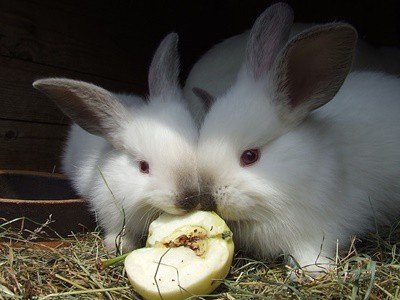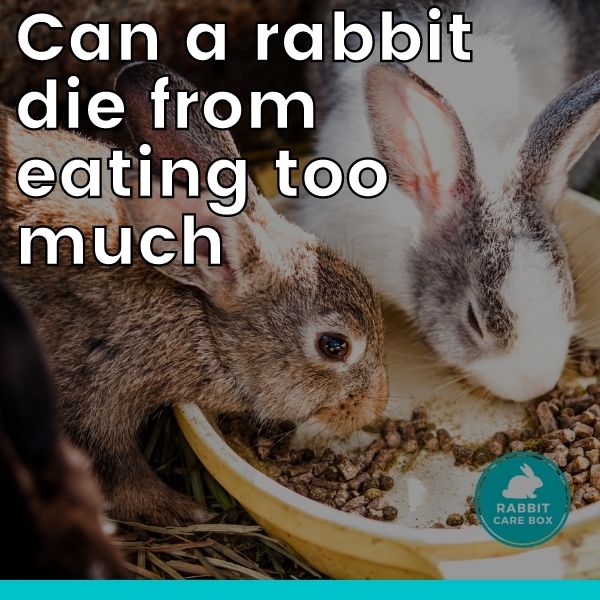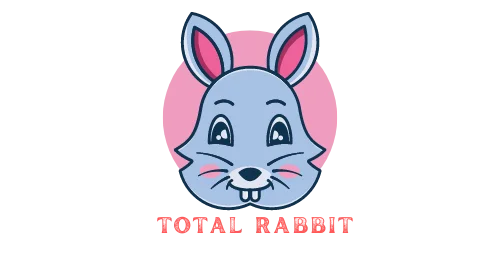How To Keep Your Rabbit From Overeating

One of the most important things to remember when it comes to keeping your rabbit healthy is to make sure they don’t overeat. Just like humans, rabbits can become obese if they consume too many calories and don’t get enough exercise. Here are a few tips to help you keep your rabbit at a healthy weight:
1) Monitor your rabbit’s food intake. This means knowing how much food they should be eating each day and making sure they stick to that amount. You can do this by measuring out their food or using a portion control feeder.
2) Avoid processed foods and snacks. These are high in sugar and fat and can cause your rabbit to gain weight. Instead, give them fresh vegetables or hay as treats.
3) Get your rabbit moving! Encourage them to run around and play by setting up a simple obstacle course or providing them with toys.
- Keep an eye on your rabbit’s weight
- If they start to put on too much weight, it’s time to cut back on their food intake
- Make sure you’re feeding them a healthy diet
- A diet that is high in fiber and low in sugar will help keep them from overeating
- Provide plenty of fresh water for your rabbit to drink
- This will help fill them up and keep them hydrated
- Give them plenty of exercise
- A rabbits needs to run and play to stay healthy and fit, so make sure they have plenty of space to do so
- If you think your rabbit is overeating, talk to your veterinarian about it
- They can help you determine the cause and come up with a plan to help your rabbit slim down safely
Can Rabbits Overeat And Die
Few animals are as adorable as a fluffy rabbit, which is one of the reasons they’ve become such popular pets. Unfortunately, many people don’t realize that rabbits have very specific dietary needs and if they overeat, it can actually kill them.
Rabbits are herbivores and their diet should consist mostly of hay, fresh vegetables, and a small amount of pellets.
Hay is essential for rabbits because it helps keep their digestive system healthy and provides them with the necessary fiber.
Fresh vegetables are also an important part of a rabbit’s diet as they provide essential vitamins and minerals. However, because rabbits have delicate stomachs, it’s important to introduce new foods slowly so their system can adjust.
Pellets should only make up a small portion of a rabbit’s diet – about 1/4 cup per day for an adult rabbit – because they are high in calories and can cause weight gain.
While most rabbits will naturally eat what they need and self-regulate their intake, some may overeat if given free access to food. This can happen if there is an abundance of fresh vegetables available or if the pellets are especially tasty.
Overeating can lead to obesity in rabbits which puts them at risk for health problems like heart disease, arthritis, respiratory problems, and even diabetes. In extreme cases, obesity can be fatal.
Can Rabbits Overeat Pellets
Rabbits are small, delicate creatures that require a specific diet in order to stay healthy. A common question asked by rabbit owners is whether or not their furry friend can overeat pellets. The answer is yes, rabbits can overeat pellets if they’re not given enough other types of food to balance out their diet.
Pellets should make up the majority of a rabbit’s diet, around 80%. The rest of their diet should be hay, vegetables, and water. If a rabbit only has access to pellets, they will eat them until they’re sick.
This is because pellets are high in calories and rabbits need those calories to survive.
Signs that your rabbit has overeaten pellets include diarrhea, lethargy, and anorexia. If you notice any of these signs in your rabbit, take them to the vet immediately.
Overeating pellets can lead to serious health problems such as gastrointestinal stasis and liver disease.
To prevent your rabbit from overeating pellets, make sure they have plenty of hay available at all times. Hay is essential for a rabbit’s digestive system and provides many other benefits as well.
It’s also important to feed your rabbit fresh vegetables every day. A variety of vegetables will provide your bunny with the nutrients they need to stay healthy.
My Rabbit is Obsessed With Food
If you’re like most rabbit owners, you’ve probably noticed that your furry friend is always on the lookout for food. In fact, rabbits areobsessed with food! This may seem like a bad thing, but it’s actually quite natural for rabbits.
Here’s a closer look at why rabbits are so fixated on food and what you can do to keep your rabbit healthy and happy.
Rabbits are born to eat! In the wild, rabbits spend most of their time eating grasses and other vegetation.
They also munch on bark, twigs, and leaves. This diet is high in fiber, which helps keep their digestive system healthy. Domestic rabbits don’t have access to all of those different foods, so they need to be fed a diet that mimics their natural diet as closely as possible.
The best way to do this is to feed them hay, fresh vegetables, and a small amount of pellets.
A healthy diet isn’t the only reason why rabbits are obsessed with food though. For rabbits, eating is also a way to relieve boredom or stress.
If your rabbit isn’t getting enough mental stimulation or physical activity, he may start overeating out of boredom or anxiety. That’s why it’s important to provide your rabbit with plenty of toys and opportunities to run around and play.
Finally, some experts believe that there may be a genetic component to a rabbit’s obsession with food.
Wild rabbits who ate more were more likely to survive and reproduce than those who didn’t eat as much. As a result, over time the genes associated with being an “eater” became more common in the population while the genes associated with not being as interested in food became less common . So if you have a Rabbit who seems particularly obsessed with food , it could be because he comes from a long line of good eaters!
If My Rabbit Keeps Eating So Much He is Going to Be As Big As a
There is no definitive answer to this question since there are many variables involved, such as the type of rabbit, its diet, and how much exercise it gets. However, if a rabbit continues to eat a lot and doesn’t get enough exercise, it could become overweight and even obese. This could lead to health problems such as heart disease and joint problems.
Therefore, it’s important to make sure your rabbit stays at a healthy weight by feeding him or her a balanced diet and providing plenty of opportunities for exercise.
My Rabbit Only Eats Pellets
As a responsible rabbit owner, you may be wondering why your rabbit only wants to eat pellets. After all, rabbits are supposed to be herbivores that enjoy munching on fresh vegetables and fruits, right? While it’s true that rabbits should have a diet that consists mostly of hay, pellets can actually be a healthy part of your bunny’s diet as well.
Here’s what you need to know about feeding your rabbit pellets:
Pellets are nutritionally complete. This means that they contain all the nutrients your bunny needs in order to stay healthy.
Hay is also nutritious, but it doesn’t provide everything that pellets do. For example, hay doesn’t contain any vitamin A while pellets do. This is important because vitamin A helps keep your bunny’s eyes healthy.
Pellets can help prevent obesity. Because they’re nutritionally complete, you don’t have to worry about overfeeding your bunny if he or she only eats pellets. This is in contrast to feeding your bunny too many treats which can lead to weight gain and other health problems down the road.
Pellets can save you money. If you buy high-quality hay and vegetables for your bunny, those costs can add up quickly! Pellets are much less expensive than buying all those separate items and they’ll last longer since your bunny won’t be able to pick through them and choose only her favorite bits (like she would with hay).

Credit: www.rabbitcarebox.com
Why Does My Rabbit Eat Too Much?
If you’ve ever wondered why your rabbit seems to eat too much, you’re not alone. It’s a common question from new bunny owners, and there are a few possible explanations.
The first thing to consider is whether your rabbit is actually eating too much, or if it just appears that way.
Rabbits have very high metabolisms and need to eat frequently throughout the day to keep up their energy levels. So, even though it may seem like they’re always grazing, they’re actually just following their natural instincts.
Another possibility is that your rabbit is bored and/or stressed.
When rabbits are bored or stressed, they often turn to food as a form of comfort. If you think this might be the case with your bunny, try increasing its exercise time and providing more enrichment toys (e.g., tunnels, hiding spots) in its enclosure.
Lastly, some rabbits simply have faster metabolism than others and will naturally eat more than their counterparts.
If you’ve ruled out the other possibilities and suspect this is the case with your rabbit, talk to your veterinarian about ways to help regulate its weight (e.g., special diet foods).
Will Rabbits Stop Eating When Full?
Yes, rabbits will stop eating when full. They have a natural instinct to know how much they need to eat and will usually stop before they overeat. However, if there is an abundance of food available, they may continue to eat even after they’re full.
This is why it’s important to provide a balanced diet and not overfeed your rabbit.
Should I Limit My Rabbits Food?
If you are considering limiting your rabbit’s food, there are a few things you should take into account. First, rabbits are grazers and need a constant supply of fresh hay and vegetables to stay healthy. Second, rabbits have delicate digestive systems and can easily become sick if they don’t get enough fiber in their diet.
Third, rabbits are prone to obesity, so it’s important to make sure they are getting enough exercise.
That being said, there may be times when you need to limit your rabbit’s food. For example, if your rabbit is overweight, you will want to cut back on the amount of pellets and other high-calorie foods he or she eats.
If your rabbit is ill or recovering from surgery, he or she may need a reduced-calorie diet. And if you’re introducing new foods into your rabbit’s diet, it’s best to do so gradually to avoid upsetting his or her stomach.
In general, though, it’s best not to limit your rabbit’s food too much.
A healthy diet is essential for keeping your bunny happy and healthy!
Rabbit Feeding Tips – Don't Overfeed Your Bunny!
Conclusion
If you’re like most people, you probably think of rabbits as little balls of fluff that hop around and eat carrots. However, rabbits are actually very active creatures that need a lot of exercise. One important way to keep your rabbit healthy is to make sure they don’t overeat.
Rabbits have a natural tendency to overeat because they’re foragers. In the wild, Rabbits will eat anything they can find, including grass, twigs, and leaves. This means that they’ll also eat anything you put in their cage, even if it’s not good for them.
One way to prevent your rabbit from overeating is to feed them smaller meals more often throughout the day instead of one large meal. You can also try giving them hay or pellets in a food dispenser so they have to work for their food.
Another way to keep your rabbit from overeating is to provide them with plenty of toys and things to do.
Bored rabbits are more likely to overeat out of boredom. Make sure their cage has plenty of space to run around and explore, and give them lots of different toys to play with.
By following these tips, you can help your rabbit stay healthy and avoid obesity.
